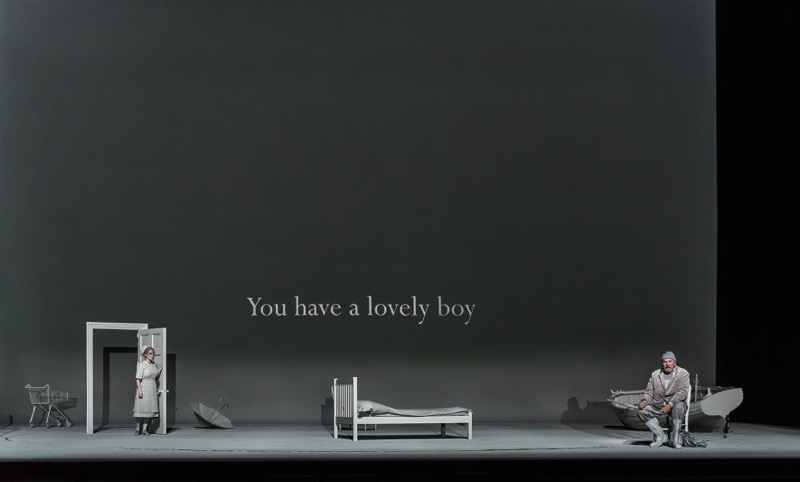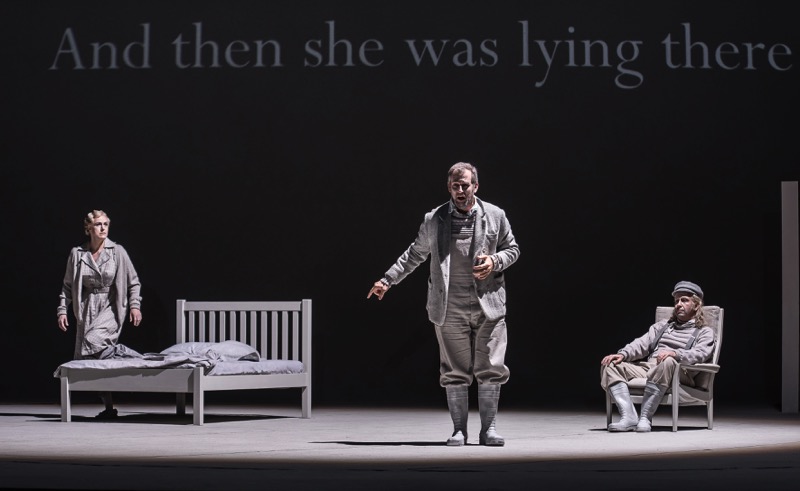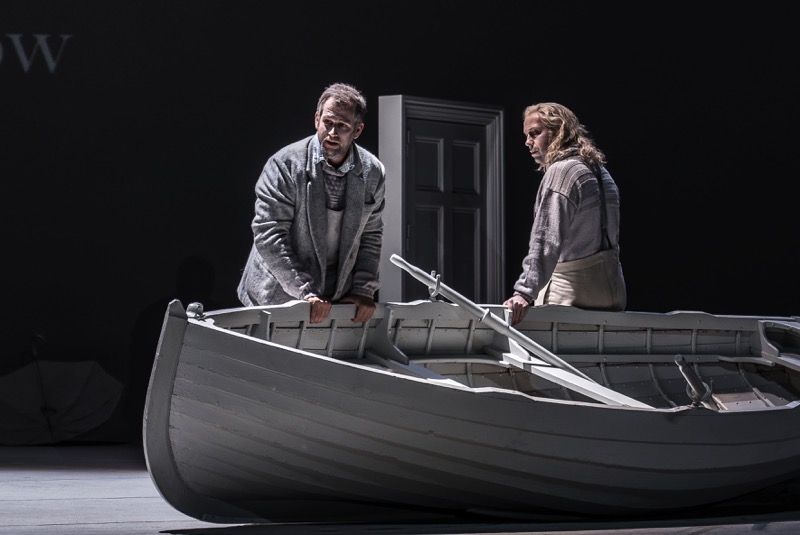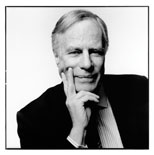Morgan und Abend, Royal Opera, ROH, Covent Garden, November 2015
Posted on 14 November 2015In many operas we are watching life, yet see death. In this one we are watching death, yet see life — a remarkable turnaround facilitated by a fantastic match between music and libretto.

Midwife and Father, all images ROH/ Clive Barda
Austrian composer Georg Friedrich Haas draws on the avant garde tradition of his homeland in producing a musical language that uses microtones and creates soundscapes that seem to play with the passage of time itself. The text is by Norwegian dramatist Jon Fosse, hailed as the new Ibsen, whose libretto is based on his novel Morning and Evening. Morning represents birth, Evening death, and in Graham Vick’s excellent staging, with designs by Richard Hudson and lighting by Giuseppe di Iorio, we are in a grey Mesopotamian-like Netherworld where all is of clay.

Erna, Johannes, Peter
It is clear at the outset that this is a memory of life, a father’s memory of the birth of his son Johannes, but it becomes a memory of Johannes himself overlaid as the opera progresses by interactions with his wife Erna, his daughter Signe and his friend Peter. Erna and Peter seem to have died before him, yet Signe is in a different world where, though she cannot see him, she senses his presence as he tries to grasp her. In the end, Signe is alone recalling her father’s death and burial yet still able to feel his presence in the gentle wind on a bright day near a sparkling blue ocean.

Johannes and Peter
Baritone Christoph Pohl and soprano Sarah Wegener sing with superb musicality and remarkable diction as Johannes and Signe — who doubles as the midwife. Microtones appear in the vocal line but not the orchestral score, whose realisation under the baton of Michael Boder created sound that seemed to speed up and slow down at will, particularly in the first part where an actor playing the role of Johannes’ father speaks in English. The singers, including Helena Rasker and Will Hartmann as Erna and Peter, sang beautifully in German.

All departed except Signe
The rhythm and tune of the German language are important to Haas’s composition, but the spoken words of Johannes’ father (during the first half-hour of a performance lasting about 90 minutes) are in the local language — English here but German for later performances at the Deutsche Oper in Berlin. The same actor (Klaus Maria Brandauer) does both, but his unnatural English intonation takes on a comedic Peter Sellers’ aspect in moments of tension. Pity, but as soon as the singing starts it is like a light shining through the darkness. Wonderful, and congratulations to the Royal Opera for putting such an original work on the main stage.
Performances continue on various dates until November 28 — for details click here.


I totally disagree. This was boring and tedious in the extreme with banal dialogue and pretentious thoughts. Clever music but would have benefited by a 75% cut in its length. One star.
It’s a good job we’re all different. Though ninety minutes was obviously too long for those I saw text messaging during the performance.
This texting in the opera houses is really bad news. Mind you, you could have composed and sent a dozen texts in the 1st 35 minutes and missed very little.
I fall somewhere between Mark and Peter Hodgson. I was pleased to have seen it. The music was quite mesmeric (admittedly to the point of my dropping off at one point), the performances very good and the staging stylish. The dialogue irritated me. A sentence then 3 minutes pause. (reminded me of parts of the BBC drama ‘London Spy’) then banal sentiments repeated several times. I am glad it was only 90 minutes.
I was greatly impressed by both the music and the staging, though it demanded concentrated attention. Why should these central events at either end of our existence be portrayed at speed? The idea of using an opera to reflect on ‘the struggle into and out of life’ (to quote the programme synopsis) is quite a challenge; personally I found it neither banal nor pretentious. I liked the starkness, and thought the libretto was reflective rather than repetitive.
Mark, your review was the only intelligent one I could find. You put it perfectly, the symbiosis of music and staging was sublime. Thank you!